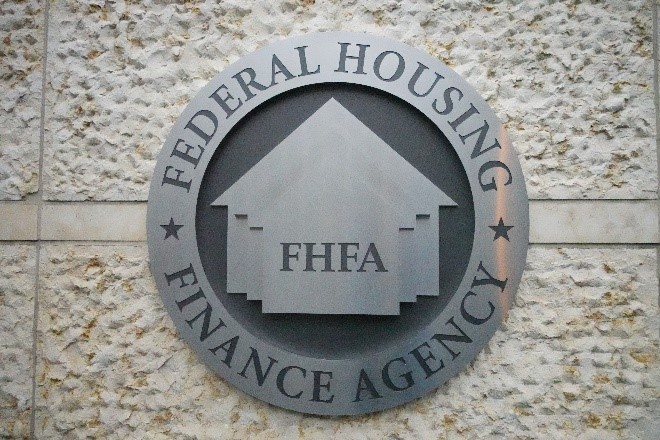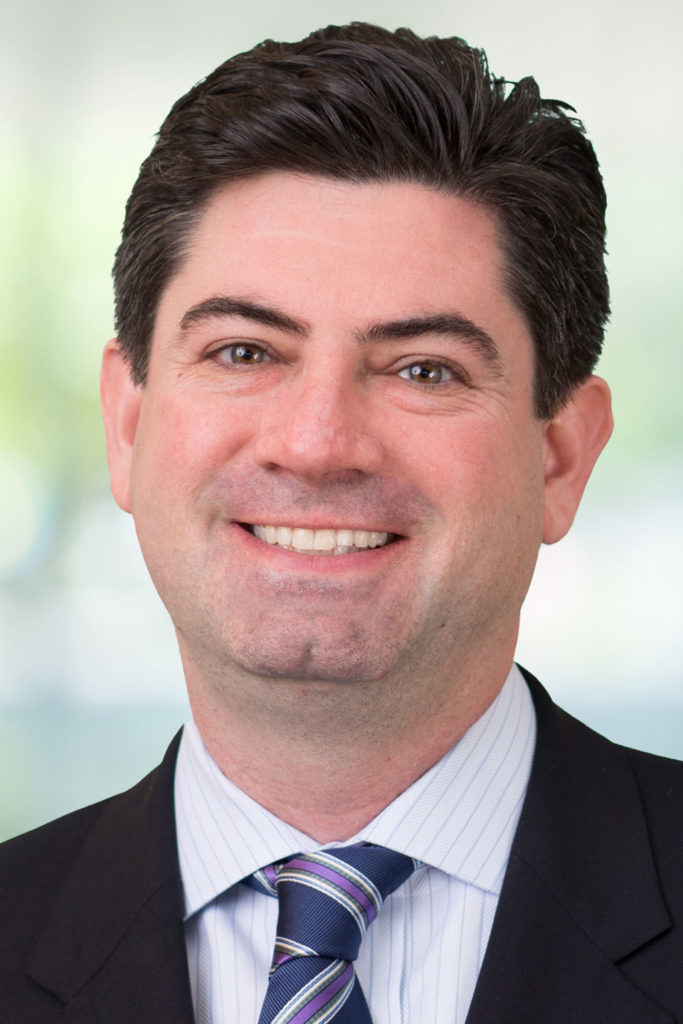
1,821 words. Six minute read. See item #5 for Capital Commentary Contest.
Housing policy aficionados are keeping a watchful eye on the U.S. Supreme Court related to the future of the Director of the Federal Housing Finance Agency (FHFA). But at the FHFA, it is business as usual. In fact, the pace of business has been swift since the first of the year, focusing on:
- Unveiling a new refi program for low-income borrowers.
- Issuing a report on the performance of credit risk transfer transactions at the GSEs.
- Tightening a deadline for restrictions on using the cash window.
- Halting mortgage insurance pilots at the GSEs.
We look at the FHFA’s actions — and reactions from housing policy leaders.
Collins v. Mnuchin (now Yellen) Explained
After the 2008 housing crash, Congress created the FHFA to oversee the Government Sponsored Enterprises (GSEs), Fannie Mae and Freddie Mac.
- To ensure the agency’s independence, Congress stipulated that the FHFA Director could be fired for cause but not for policy disagreements.

Is the structure constitutional? But in Collins v. Mnuchin (Steven Mnuchin was Treasury Secretary during the Trump administration, so officially, the case is now Collins v. Yellen, as Janet Yellen was appointed to the role in January), the FHFA’s leadership was challenged as an unconstitutional infringement on presidential power.
- Plaintiffs win round one: The Fifth Circuit Court of Appeals, in a 9–7 decision, determined the structure violated the separation of powers because the President has less ability to influence the policies of an independent agency headed by one person than he does the policies of independent agencies led by boards or commissions.
The case was appealed to the Supreme Court, which heard arguments in December. A decision is expected any day.
- What it could mean: If the Supreme Court determines the President can fire the FHFA Director, President Joe Biden is expected to replace Director Mark Calabria, first with an Acting Director and later with a permanent one who would need Senate confirmation.
There are parallels to a case decided a year ago (Seila Law LLC v. CFPB) in which the High Court ruled the Director of the Consumer Finance Protection Bureau could be fired at will.
The Constitutional Accountability Center, which filed an amicus brief supporting the existing structure, argues there are two reasons the two cases differ:
- “First, the FHFA does not wield regulatory or enforcement authority comparable to the CFPB and is instead focused on the regulation of 13 government-sponsored enterprises alone.
- “Second, unlike the CFPB, the FHFA has no authority to regulate purely private actors; rather, it regulates entities like Fannie and Freddie that were created by Congress, implicitly subsidized by Congress, and regulated by Congress. For these reasons, Congress can choose to impose a for-cause restriction on the President’s power to remove the FHFA’s Director, and the Court should reverse the Fifth Circuit’s decision.”
Leave it to Jaret Seiberg of the Cowen Washington Research Group in his latest investor analysis to memorably caution against predicting how the Court will decide: “That is a fool’s errand.”
2. The FHFA Creates Low-Income Refinance Option
Over the past two years, millions of Americans refinanced their mortgages as interest rates fell to all-time lows. But millions more — especially low-income families — have been left behind the refi wave, making mortgage payments at rates far above the current market.
- The FHFA wants to change that. It instructed the GSEs to offer lower-cost refi loans to borrowers at or below 80% of an area’s average median income (AMI).
“Last year saw a spike in refinances, but more than 2 million low-income families did not take advantage of the record low mortgage rates by refinancing,” said Calabria. “This new refinance option is designed to help eligible borrowers who have not already refinanced save between $1,200 and $3,000 a year on their mortgage payment.”
- A better deal for borrowers is a must: Lenders can only originate a refi under the program if they can lower a borrower’s monthly payment by at least $50 and reduce the interest rate by at least 0.5%.
In addition to having an income at or below 80% AMI, borrowers must:
- Have an owner-occupied single-family mortgage held by a GSE.
- Have not missed a payment in the past six months or no more than one payment in the past 12 months.
- Not have a mortgage with a loan-to-value ratio above 97%, a debt-to-income ratio above 65% and a FICO® score lower than 620.
Fannie to Fannie; Freddie to Freddie: The GSEs will only refinance loans they currently hold in portfolio. For instance, a loan held by Fannie Mae would have to be refinanced and sold back to that GSE, not Freddie Mac.
3. Report Sows Doubt on Benefits of CRT; Arch Disagrees
A new report from the FHFA suggests the GSEs have overpaid to transfer their credit risk to private investors in the capital and insurance/reinsurance markets.
- The numbers may be accurate but the story the FHFA tells is incomplete.
CRT is shorthand for credit risk transfer, the method by which Fannie Mae and Freddie Mac offload credit risk to private investors to reduce taxpayer exposure to potential losses.
According to the report, roughly $126 billion of risk in force (RIF) had been placed through securities issuance and insurance/reinsurance CRTs between July 2013 and February 2021.
- The GSEs paid approximately $15 billion in interest and premiums for the credit-risk protection but to date have received only $50 million in loss recoveries.
In a recent HousingWire op-ed, Arch Global Mortgage Group CEO David Gansberg offered an analogy to explain why the cost vs. return argument is shortsighted:
“Suppose you had a home in the heart of Oklahoma’s Tornado Alley and you regularly pay your homeowner’s insurance. So far, though, your home has been spared any wind damage and you have made no claim against your insurance coverage. Does that mean you have paid too much in insurance premiums? Or that you might be better off canceling your home’s insurance protection altogether?”
Gansberg argues that it would be irresponsible for a homeowner to cancel his insurance and it would be a mistake for the GSEs to do the same with CRT.
- The GSEs, after all, have been enormously profitable since the Great Recession so they haven’t experienced a need for insurance recoveries.
Moreover, the federal government’s generous financial assistance to taxpayers and homeowners during the pandemic spared losses for financial institutions of every kind. But we can’t assume such financial aid will be available the next time the economy encounters turbulence.

David Gansberg
4. The FHFA’s “Disruptions” Draw Fire
Capital Commentary recently reviewed the harsh ramifications of new Preferred Stock Purchase Agreement (PSPA) caps on the nation’s mortgage industry, including plans to limit lenders’ use of the GSEs’ cash windows.
- In another setback for the industry, the time frame for capping loan sales through the cash windows was accelerated to July 1, from Jan. 1, 2022.
- Mid-sized lenders are likely to be most burdened. The cash window cap of $1.5 billion per GSE will require mid-sized lenders to develop the ability to securitize loans in-house or sell loans to aggregators at a price less than they would likely receive from Fannie Mae and Freddie Mac.
The decision, coupled with the burdens raised by caps on high-risk loans and loans backed by investor properties or second homes, raised the ire of the current — and former — President of the Mortgage Bankers Association (MBA).
- “The FHFA has an obligation to ensure liquidity and stabilize markets. Unfortunately, the agency is failing at this core responsibility … and has become a disruptive force in the marketplace rather than being a source of stability,” wrote MBA President Bob Broeksmit in an email to his members.
Broeksmit called on the Treasury Department, the FHFA’s partner in crafting PSPA amendments, to direct the FHFA to provide lenders with more time to comply with the loan caps.
Meanwhile, Broeksmit’s predecessor as MBA President, David Stevens, sharply rebuked Calabria’s treatment of the GSEs in a trade publication op-ed article.
“I can only imagine how frustrating it might be reporting to a public official who has never actually been in the industry or managed anything close to the breadth of responsibilities of these companies. … It is likely equally frustrating to know that the person in charge of your future … has a philosophical zealousness about the company you have an executive role in.” – David Stevens, former MBA President and CEO.
While acknowledging that Calabria was correct to ban volume-based pricing that gave large lenders a leg up competing against smaller lenders, Stevens said an array of Calabria’s policy decisions are slowly but steadily “chipping away at the programs of the GSEs” and shrinking their footprint in housing finance.
- Add one more market disruption: The FHFA told the GSEs to stop their pilot programs known as EPMI (Fannie Mae) and IMAGIN (Freddie) that enabled the GSEs to select their counterparties for covering the first-loss risk on loans above an 80% loan-to-value ratio.
- The pilots had operated since 2018 and been used by a small set of lenders. The GSEs may have the opportunity to seek the FHFA’s approval to make EPMI and IMAGIN offerings for all lenders, but the regulator hasn’t determined the process for considering new products.
A better solution would have been to keep the product alive until the FHFA completes the formal new product review process. Instead, EPMI and IMAGIN will exist for a few more months, then stop and potentially start again upon completion of the program review.
5. Contest # 8: “Didn’t You Used to Be?”
Over the centuries, a plethora of federal government agencies have changed their names to more accurately reflect their function.
- The U.S. Department of War was the precursor to today’s Department of Defense.
- The Office of Strategic Services was the forerunner to the Central Intelligence Agency.
- After the savings and loan crisis of the late 1980s, the Federal Home Loan Bank Board became the Office of Thrift Supervision. (But don’t try to find it; the OTS is now gone, too.)
Take the quiz: What was the agency’s name that was responsible for overseeing Fannie Mae and Freddie Mac before FHFA was created in 2008?
Email your answer to [email protected] by midnight Tuesday, June 9, to win the Arch MI Capital Commentary/PolicyCast mug and saucer.
Answer to Contest #7: Why were legislators Cranston and Gonzalez deserving of having their names on the 1990 National Affordable Housing Act? Sen. Alan Cranston (D-CA) was chairman of the Senate Banking Committee; Rep. Henry B. Gonzalez (D-TX) was chairman of the House Financial Services Committee. It is a common practice to honor the leaders of those committees. The most prominent one now is the Dodd-Frank Act, passed in 2010 after the financial crash when Sen. Christopher Dodd (D-CT) and Rep. Barney Frank (D-MA) headed Congressional committees overseeing the finance industry.

Do you think Capital Commentary offers valuable information on housing policy and its potential impacts? If you do, share your comments with us. Your feedback will help ensure Capital Commentary covers the stories that have the most impact on your business.

About Arch MI’s Capital Commentary
Capital Commentary newsletter reports on the public policy issues shaping the housing industry’s future. Each issue presents insights from a team led by Kirk Willison.
About Arch MI’s PolicyCast
PolicyCast — a video podcast series hosted by Kirk Willison — enables mortgage professionals to keep on top of the issues shaping the future of housing and the new policy initiatives under consideration in Washington, D.C., the state capitals and the financial markets.
Stay Updated
Sign up to receive notifications of new Arch MI PolicyCast videos and Capital Commentary newsletters.